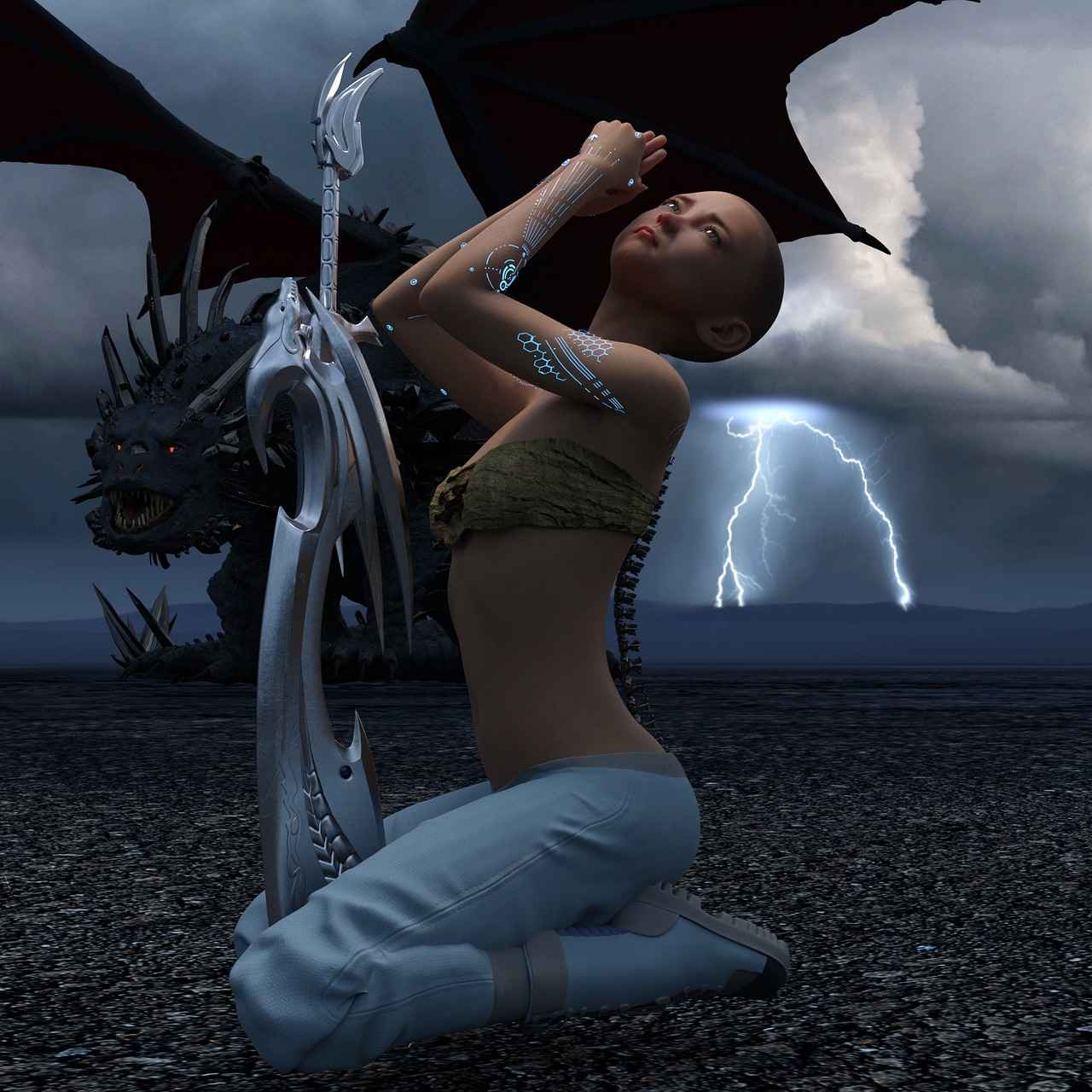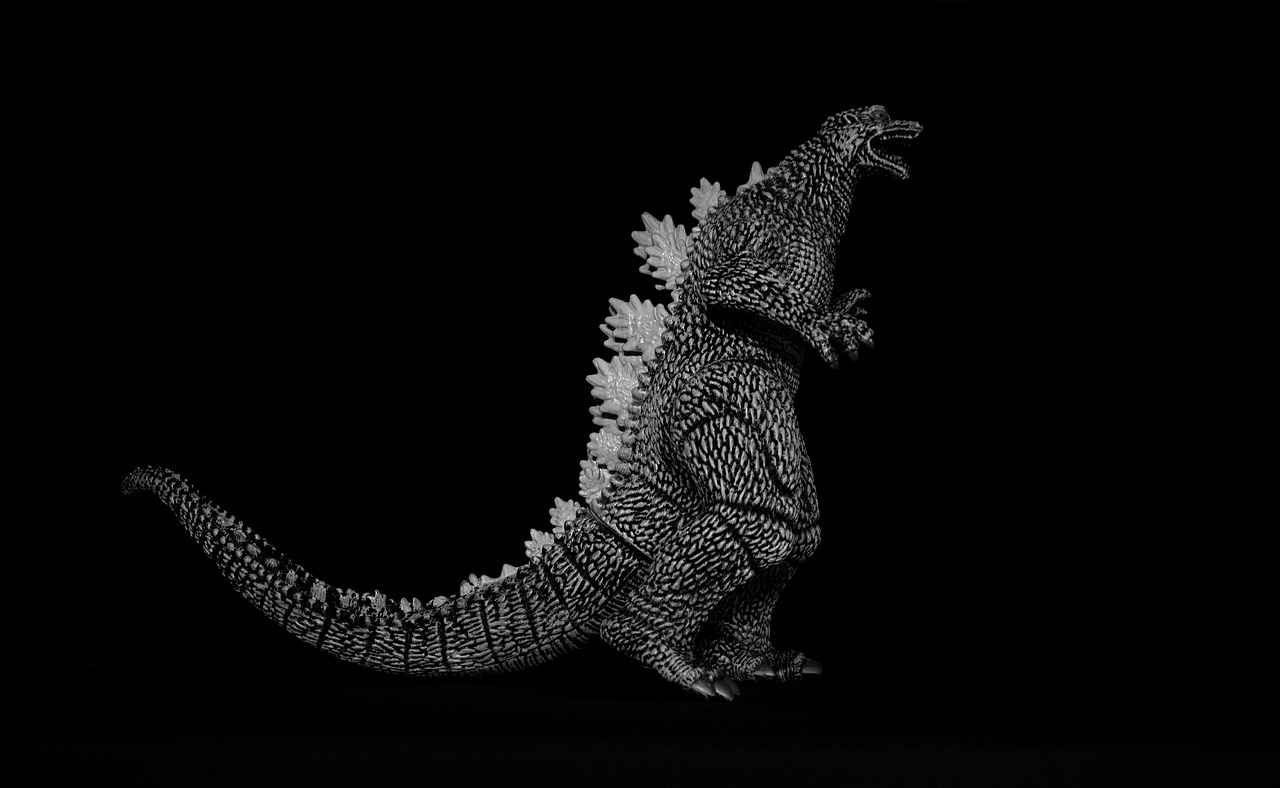Shirou Emiya is a character whose journey profoundly illustrates the essence of heroism within the Fate/Stay Night universe. This article delves into his motivations, the evolution of his character, and the pivotal moments that define his path to becoming a hero.
Understanding Shirou Emiya’s Background
Shirou’s early life is marred by tragedy, having lost his family in a fire caused by the conflict of the Holy Grail War. This traumatic experience molds his ideals, instilling in him a desire to protect others from suffering similar fates. His upbringing under the guidance of Kiritsugu Emiya further influences his aspirations, as he strives to embody the ideals of a true hero.
The Concept of Heroism in Fate/Stay Night
Heroism in Fate/Stay Night is portrayed through various lenses, with Shirou’s unique perspective standing out. He believes that a hero is someone who saves others, even at great personal cost. This belief drives his decisions and actions throughout the series, often leading him into conflict with other characters who have differing views on what it means to be a hero.
Shirou’s Ideals and Morality
Shirou’s unwavering commitment to saving others stems from his moral compass, which is often tested throughout the narrative. His relationships with characters like Saber and others in the Holy Grail War challenge him to confront his ideals and the harsh realities of the world around him.
The Influence of Kiritsugu Emiya
Kiritsugu’s teachings play a crucial role in shaping Shirou’s worldview. Despite Kiritsugu’s morally ambiguous actions, Shirou inherits a complex understanding of heroism, which he grapples with as he strives to forge his own identity.
Character Development Throughout the Series
Shirou’s character evolves significantly, transitioning from a naive boy to a determined hero. Key moments, such as his encounters with various Servants and the moral dilemmas he faces, catalyze this growth, forcing him to reconsider what it truly means to be a hero.
The Role of Fate and Destiny
The themes of fate and destiny are intricately woven into Shirou’s journey. His decisions are often influenced by the notion that he is destined to become a hero, which adds layers to his character and the choices he makes.
Shirou’s Relationship with Saber
The dynamic between Shirou and Saber is pivotal in his development. Their partnership not only strengthens his resolve but also deepens his understanding of heroism, as he learns from her experiences and ideals.
The Impact of Other Servants
Interactions with other Servants challenge Shirou’s beliefs and push him to confront the complexities of heroism. These encounters serve as critical moments of reflection, shaping his character and ideals.
Conclusion: Shirou’s Legacy as a Hero
Shirou Emiya’s legacy in Fate/Stay Night is one of sacrifice and unwavering determination. His journey resonates with themes of heroism, illustrating the complexities of pursuing one’s ideals in a world fraught with challenges. Through his growth, Shirou embodies the essence of what it means to be a hero, leaving a lasting impact on those around him.

Understanding Shirou Emiya’s Background
Shirou Emiya, the protagonist of Fate/Stay Night, has a deeply layered background that significantly influences his character and motivations. His early life was marked by tragedy, which played a pivotal role in shaping his ideals and aspirations as a hero. Born as the son of a renowned mage, Shirou’s life took a drastic turn when he was orphaned at a young age. He was saved from a devastating fire by Kiritsugu Emiya, a mercenary known for his ruthless methods and strong sense of justice. This incident not only left physical scars on Shirou but also instilled in him a profound sense of loss and a desire to protect others from suffering similar fates.
Growing up under Kiritsugu’s guidance, Shirou was exposed to a complex moral framework. His adoptive father’s beliefs about heroism were deeply ingrained in him, leading Shirou to adopt the mantra of becoming a “hero of justice.” This idealization of heroism is further complicated by Kiritsugu’s own tragic past, which serves as a cautionary tale for Shirou. The young boy’s experiences, combined with the teachings of his father, fostered a relentless ambition to save people, often at the cost of his own well-being.
As Shirou navigates the challenges of the Holy Grail War, his past continually resurfaces, forcing him to confront the harsh realities of his ideals. The contrast between his noble aspirations and the brutal nature of the world around him creates a compelling narrative arc. Through encounters with various characters, Shirou learns that heroism is not merely about saving others but also about understanding the weight of one’s choices. This journey from a naive boy to a determined hero is marked by pivotal moments that challenge his beliefs and ultimately shape his destiny.
In summary, Shirou Emiya’s background is a tapestry of tragedy, mentorship, and evolving ideals. His early life experiences not only define his character but also serve as the foundation for his aspirations as a hero in the Fate/Stay Night series.

The Concept of Heroism in Fate/Stay Night
In the intricate narrative of Fate/Stay Night, heroism is portrayed through a multifaceted lens, showcasing varying interpretations that challenge conventional notions of what it means to be a hero. Central to this exploration is Shirou Emiya, whose unique perspective on heroism profoundly influences his choices and actions throughout the series.
Shirou’s understanding of heroism is deeply rooted in his traumatic past, particularly the loss of his family in a fire, which instills in him a desire to protect others from suffering similar fates. This formative experience shapes his ideal of a hero as someone who sacrifices for the greater good, often at the expense of their own well-being. As he navigates the complexities of the Holy Grail War, Shirou’s commitment to these ideals leads him to make choices that reflect his unwavering resolve.
One of the most significant aspects of Shirou’s heroism is his moral compass. He believes that saving others is paramount, which often puts him at odds with other characters who possess more pragmatic views of heroism. For instance, his interactions with characters like Kiritsugu Emiya, his adoptive father, reveal conflicting ideologies about what it means to be a hero. Kiritsugu’s utilitarian approach contrasts sharply with Shirou’s idealism, forcing Shirou to confront the harsh realities of his beliefs.
Furthermore, Shirou’s relationships with other Servants, particularly Saber, play a crucial role in his development. Their partnership helps him refine his understanding of heroism, as he learns from her experiences and struggles. This dynamic not only influences his growth but also challenges him to reconcile his ideals with the complexities of the world around him.
In conclusion, the concept of heroism in Fate/Stay Night is intricately tied to Shirou Emiya’s journey. His unique perspective, shaped by personal loss and moral convictions, drives him to embody the essence of a hero, ultimately leaving a profound legacy that resonates with themes of sacrifice and the pursuit of one’s ideals.
Shirou’s Ideals and Morality
Shirou Emiya serves as a compelling representation of heroism in the Fate/Stay Night universe. His unwavering commitment to saving others is a defining characteristic that shapes not only his identity but also his relationships with other characters throughout the narrative.
At the core of Shirou’s character is his moral compass, which is heavily influenced by his tragic past. Having witnessed the devastation caused by the Great Fire of Fuyuki, he is driven by a desire to prevent others from experiencing similar pain. This commitment manifests in his mantra: “A hero saves everyone.” This ideal often puts him at odds with other characters, including his mentor Kiritsugu Emiya, who has a more pragmatic view of heroism.
Shirou’s relationships are deeply intertwined with his ideals. For instance, his bond with Saber is pivotal. Their partnership is founded on mutual respect and shared goals, but it also serves as a crucible for Shirou’s beliefs. As they face challenges together, Saber often acts as a voice of reason, prompting Shirou to reflect on the realities of heroism and the sacrifices it entails.
Moreover, Shirou’s interactions with other Servants during the Holy Grail War further complicate his moral journey. Characters like Rin Tohsaka and Archer challenge his ideals, forcing him to confront the limitations of his altruism. These encounters highlight the tension between his desire to save everyone and the harsh truths of the world around him.
Ultimately, Shirou’s unwavering dedication to his principles not only defines his character but also sets the stage for significant growth. As he navigates the complexities of heroism, he learns that the path to becoming a true hero is fraught with difficult choices and moral dilemmas. This evolution is a key theme in Fate/Stay Night, as Shirou strives to reconcile his ideals with the realities of his world.
The Influence of Kiritsugu Emiya
Kiritsugu Emiya, Shirou’s adoptive father, plays a pivotal role in shaping Shirou’s worldview and his understanding of heroism. Kiritsugu’s complex character, marked by his own struggles and ideals, significantly influences Shirou’s development throughout the Fate/Stay Night series.
From a young age, Shirou is exposed to Kiritsugu’s pragmatic approach to heroism, which is often at odds with traditional notions of being a hero. Kiritsugu’s experiences as a magus and a warrior have instilled in him a harsh reality: that sometimes, the choices made in the name of saving others can lead to devastating consequences. This duality is a critical lesson that Shirou internalizes, leading him to grapple with the complexities of heroism.
Kiritsugu’s mantra, “The only way to save everyone is to become a hero,” resonates deeply with Shirou. This ideal becomes a guiding principle for Shirou, compelling him to strive for self-sacrifice and relentless determination in his quest to protect others. However, this also leads to internal conflict as Shirou struggles to reconcile his father’s ideals with the harsh realities he encounters in the Holy Grail War.
Moreover, Kiritsugu’s tragic fate serves as a cautionary tale for Shirou. The weight of Kiritsugu’s choices and the burden of regret that he carries profoundly impact Shirou’s understanding of what it means to be a hero. Shirou witnesses firsthand the consequences of Kiritsugu’s decisions, which instills in him a desire to forge a different path—one that prioritizes saving individuals rather than sacrificing them for a greater good.
In conclusion, Kiritsugu Emiya’s influence on Shirou is profound and multifaceted. Through his father’s teachings, Shirou learns that heroism is not merely about strength or power but also involves compassion, sacrifice, and the willingness to confront difficult truths. This complex legacy shapes Shirou’s journey, ultimately defining his identity as a hero in the Fate/Stay Night universe.
Shirou’s Struggles with Identity
Shirou’s Struggles with Identity
In the intricate world of Fate/Stay Night, Shirou Emiya’s journey is marked by profound internal conflicts regarding his identity as a hero. These struggles are not merely a backdrop; they are central to his character development and the overarching narrative. Shirou’s aspirations to become a hero stem from a deep-seated desire to protect others, yet he is constantly confronted with the harsh realities of the world around him.
Shirou’s idealism often clashes with the grim truths he encounters, leading to a tumultuous battle within himself. He firmly believes that a hero should save everyone, but the inevitable failures he faces challenge this notion. Each time he is unable to save someone, it chips away at his confidence and forces him to reevaluate his understanding of heroism. This internal conflict is further complicated by the expectations placed upon him by others, including his mentor Kiritsugu Emiya, whose own tragic history influences Shirou’s ideals.
Moreover, Shirou grapples with the concept of self-worth. He often feels inadequate, believing that he must live up to the legacy of those who came before him. This burden of expectation creates a rift between his desires and his actions, leading to moments of doubt and despair. As he navigates the complexities of the Holy Grail War, Shirou is compelled to confront not only his own fears but also the ethical dilemmas that come with wielding power and making choices that affect the lives of others.
Ultimately, Shirou’s journey is one of growth and self-discovery. His struggles with identity are not just obstacles; they are crucial stepping stones that lead him to a deeper understanding of what it means to be a hero. Through perseverance and introspection, Shirou learns to reconcile his ideals with the realities of the world, paving the way for his evolution from a naive boy into a determined hero.
Character Development Throughout the Series
The journey of Shirou Emiya in Fate/Stay Night is one of profound transformation, marked by pivotal moments that shape his character from a naive boy into a determined hero. This evolution is not merely a linear progression; rather, it encompasses a series of challenges and revelations that redefine his understanding of heroism.
Initially, Shirou is portrayed as an idealistic youth, driven by a desire to save others, often without a full grasp of the complexities involved in such aspirations. His early experiences, particularly the tragic loss of his family in a fire, instill in him a sense of duty to protect those who cannot protect themselves. This foundational trauma serves as a catalyst for his future decisions, driving him to embrace the ideals of a hero.
One of the most significant moments in Shirou’s character arc occurs during the Holy Grail War. Here, he is thrust into a brutal conflict that challenges his beliefs. As he encounters various Servants and witnesses the harsh realities of their battles, Shirou begins to grapple with the moral implications of his choices. For instance, his relationship with Saber, a heroic spirit, becomes a turning point, as he learns about the weight of sacrifice and the true nature of heroism.
Furthermore, Shirou’s interactions with other characters, such as his adoptive father Kiritsugu, deeply influence his moral compass. Kiritsugu’s cynical view of heroism forces Shirou to confront the darker aspects of his ideals, leading to a deeper understanding of what it means to be a hero in a flawed world.
Ultimately, Shirou’s growth is marked by his ability to reconcile his naive dreams with the harsh truths of reality. This journey culminates in a profound realization: true heroism is not just about saving others but also about making choices that reflect one’s values, even in the face of adversity.
In conclusion, Shirou Emiya’s character development throughout Fate/Stay Night is a testament to the complexities of heroism. His transformation from a naive boy to a determined hero highlights the importance of growth, sacrifice, and the relentless pursuit of one’s ideals.

The Role of Fate and Destiny
In the intricate narrative of Fate/Stay Night, the concepts of fate and destiny are not merely thematic elements; they are the very fabric that weaves together the journey of Shirou Emiya. From the outset, Shirou is confronted with a world where the paths of individuals are often dictated by forces beyond their control. This sense of predestination profoundly influences his choices and ultimately shapes his evolution into a hero.
Shirou’s journey begins with a tragic event—the fire that claimed his family. This pivotal moment not only defines his past but also sets him on a path of self-discovery. Throughout the series, he grapples with the weight of his past and the ideals he wishes to uphold. His desire to save others stems from a deep-seated belief that he can alter the course of fate, both for himself and those around him.
As Shirou navigates the complexities of the Holy Grail War, he encounters various characters who embody different aspects of heroism and sacrifice. These interactions challenge his views and force him to confront the realities of his ideals. Each decision he makes is a reflection of his struggle against fate, illustrating his determination to forge his own destiny, despite the overwhelming odds stacked against him.
Moreover, Shirou’s relationship with Saber serves as a critical element in his understanding of heroism. Their partnership highlights the tension between personal desires and the responsibilities of a hero. Saber’s own struggles with her past and her role as a servant mirror Shirou’s internal conflicts, emphasizing the theme that destiny can be both a burden and a guiding light.
In conclusion, Shirou Emiya’s journey illustrates the profound impact of fate and destiny on personal growth and heroism. His story is a testament to the idea that while our paths may be influenced by external forces, the choices we make define who we are. Ultimately, Shirou’s legacy as a hero is not merely about the battles he fights, but the ideals he chooses to uphold in the face of an uncertain future.
Shirou’s Relationship with Saber
The partnership between Shirou Emiya and Saber is a cornerstone of the narrative in Fate/Stay Night. Their dynamic not only shapes the plot but also profoundly influences Shirou’s development and his understanding of what it truly means to be a hero.
At the outset, Shirou is depicted as a naive and idealistic young man, driven by a desire to save others. This aspiration is rooted in his traumatic past, where he witnessed the devastation of a fire that claimed his family. Saber, as his Servant, embodies the qualities of a true hero, being both strong and noble. Through their interactions, Shirou begins to grasp the complexities of heroism, moving beyond his simplistic notions.
Initially, Shirou views Saber as a means to an end—a powerful ally in the Holy Grail War. However, as they battle together, he learns to appreciate her values, such as self-sacrifice and loyalty. These lessons are pivotal in Shirou’s growth. For instance, Saber’s unwavering commitment to her own ideals challenges Shirou to reflect on his motivations. He starts to realize that being a hero is not just about saving lives but also about making difficult choices and accepting the consequences of those choices.
Moreover, their relationship evolves into a bond of mutual respect and understanding. Shirou’s admiration for Saber deepens as he witnesses her struggles and sacrifices. This connection leads him to confront his own fears and insecurities, pushing him to redefine his identity as a hero. The emotional support they provide each other becomes a vital aspect of their partnership, allowing Shirou to develop resilience in the face of adversity.
In conclusion, the dynamic between Shirou and Saber is essential in shaping Shirou’s character. Through their partnership, Shirou learns that heroism encompasses not only the desire to protect others but also the courage to face personal challenges and moral dilemmas. This evolution ultimately lays the foundation for Shirou’s legacy as a hero in the Fate/Stay Night universe.
The Impact of Other Servants
Throughout the Holy Grail War, Shirou Emiya encounters a diverse array of Servants, each representing different ideals and philosophies regarding heroism. These interactions serve as pivotal moments that challenge Shirou’s own beliefs and force him to confront the complexities of his ideals.
One of the most significant influences on Shirou is his relationship with Saber. As a heroic spirit, Saber embodies the principles of chivalry and honor, which resonate deeply with Shirou’s aspirations. However, their partnership also reveals the harsh realities of heroism; Shirou learns that the path of a hero is fraught with difficult choices and sacrifices. This dynamic pushes Shirou to question whether his idealistic view of heroism can withstand the brutal truths of battle.
In contrast, interactions with other Servants, such as Archer and Rider, further complicate Shirou’s understanding of what it means to be a hero. Archer’s cynical perspective on heroism serves as a stark reminder of the potential futility in Shirou’s quest. Archer’s past as a hero who ultimately regrets his choices forces Shirou to grapple with the notion that not all heroic actions lead to noble outcomes. This confrontation with Archer’s reality instills doubt in Shirou, prompting him to reconsider the motivations behind his desire to save others.
Additionally, the presence of Servants like Lancer and Gilgamesh introduces contrasting views on strength and power. Lancer’s unwavering loyalty and honor challenge Shirou to reflect on the nature of sacrifice, while Gilgamesh’s arrogance and disdain for humanity force Shirou to confront the darker aspects of heroism. These encounters illustrate that heroism is not a one-dimensional concept but rather a multifaceted struggle that requires introspection and growth.
Ultimately, the interactions Shirou has with these Servants serve as catalysts for his character development. They compel him to reevaluate his ideals and confront the harsh truths of his aspirations, guiding him towards a more nuanced understanding of what it truly means to be a hero in a world filled with conflict and moral ambiguity.

Conclusion: Shirou’s Legacy as a Hero
Shirou Emiya stands as a compelling figure in the realm of anime, particularly within the Fate/Stay Night universe. His journey is not merely a tale of battles and magic; it is a profound exploration of sacrifice and the relentless pursuit of one’s ideals. As we reflect on Shirou’s legacy, it becomes clear that his character resonates deeply with themes that are both timeless and universal.
Shirou’s evolution from a naive boy to a determined hero is marked by pivotal moments that define his character. His tragic past, shaped by the loss of his family in a fire, instills in him a desire to protect others at all costs. This commitment to heroism is further influenced by his adoptive father, Kiritsugu Emiya, whose own complex ideals of heroism leave a lasting imprint on Shirou. The internal struggle Shirou faces—balancing his aspirations with the harsh realities of life—serves as a poignant reminder of the cost of heroism.
Throughout the series, Shirou’s relationships with other characters, especially Saber, play a crucial role in his development. Their partnership not only deepens his understanding of what it means to be a hero but also highlights the themes of trust and collaboration. Moreover, encounters with other Servants challenge his beliefs, forcing him to confront the complexities of his ideals.
Ultimately, Shirou Emiya’s legacy is one of resilience and unwavering determination. His journey illustrates the essence of true heroism—not merely in the act of saving others but in the sacrifices made along the way. As fans of Fate/Stay Night continue to engage with his story, Shirou’s impact endures, reminding us all of the importance of pursuing our ideals and the sacrifices that often accompany such a noble path.
